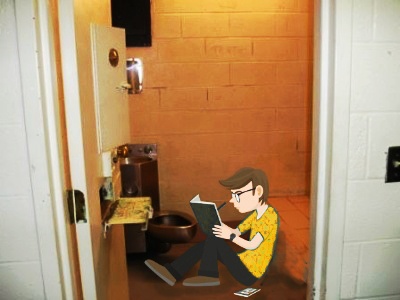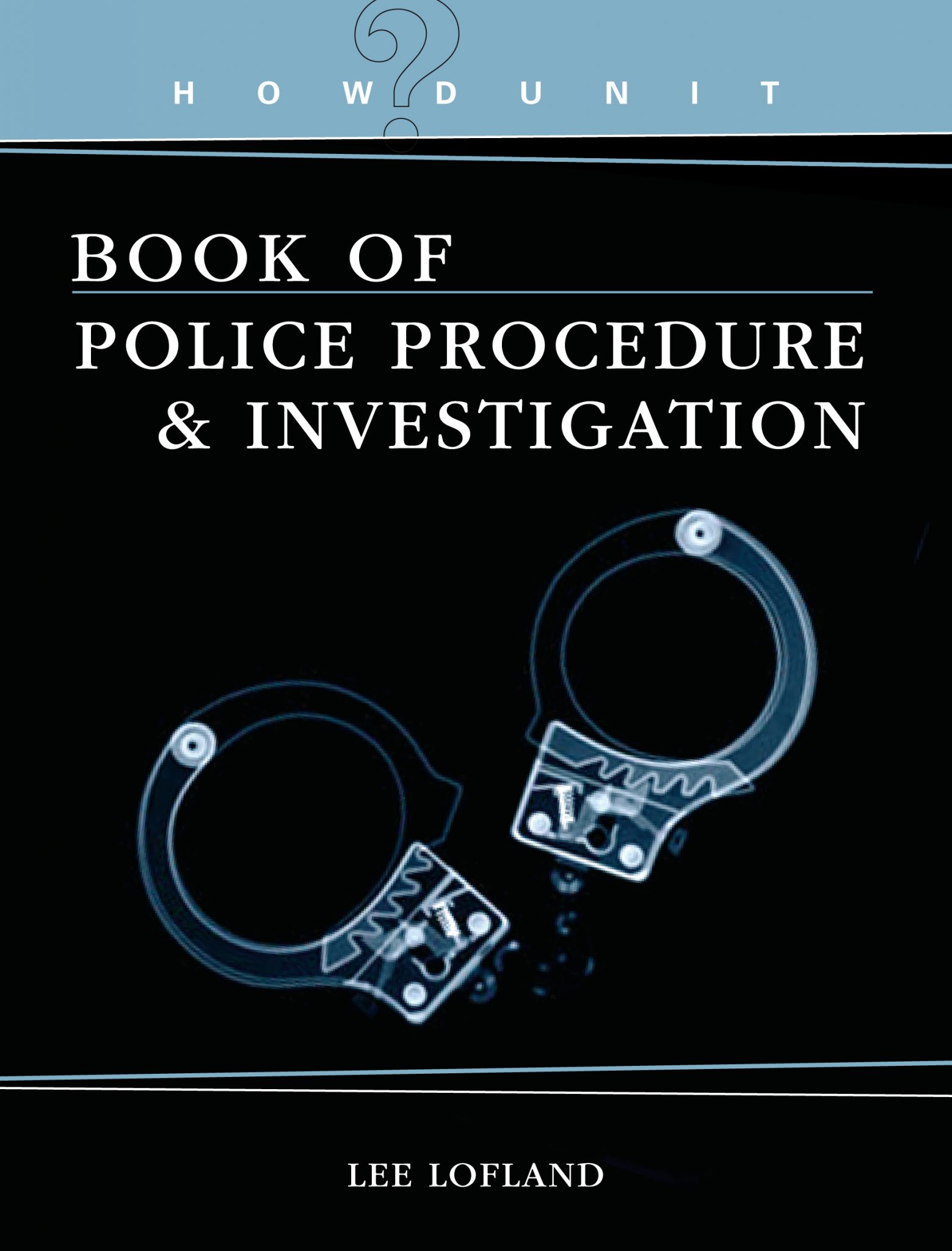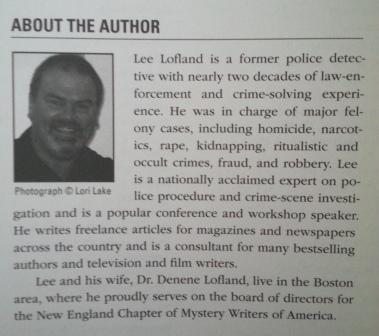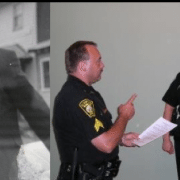Researching Cops:What To Do When A Murderer Comes Calling
Writers are a curious bunch of folks who should never let walls, doors, locks, or the word NO stop them from producing high quality books.
The tellers of both tall and short tales, in fact, go to great lengths to find detail—the perfect setting, great, believable characters, and those wonderfully juicy tidbits of information that stimulate a reader’s senses.
With pen in hand and minds wide open, a writer will do whatever it takes to reach the last page of their work-in-progress, including hopping on a plane, train, car, or truck to travel to wherever information can be found. They walk, they talk, they telephone, they email, they read blogs and books, they ride with cops, attend court proceedings, and they attend awesome events such as the Writers’ Police Academy and/or Writers’ Police Academy Online courses. Again, they do what it takes and they do it all in the name of pleasing readers.
Many stories include prison and/or jail settings, as well as the residents and/or employees of each. So what do writers do? They meet with jail officials and arrange to tour their facility. Sure, it can sometimes be a very steep uphill battle to get a foot in the door to some places of incarceration. But, as it’s been said, where there’s a will there’s a way inside, or something along those lines.
Suppose, though, that you, a writer, find yourself incarcerated for a long, long time. Perhaps for the remainder of your life. What would you do? After all, your passion is the written word. You have so many stories to tell, especially the one that landed you behind bars. You’ve gotta write!
So how on earth would you obtain the information you need for your book(s)? The internet is often not available. No modern library (in many lockups you’d be fortunate if there’s anything more than a few tattered paperbacks stacked in what used to be a mop closet). You’d have very little, if any, contact with people on the outside. And, if your story involves law enforcement, forensics, etc., you can pretty much rule out the assistance of cops and CSI experts.
What would you do?
Well, one such writer, a prisoner, once reached out to me back a while back via my publisher. He sent a three page handwritten letter, complete with a very nice, well-written one-page introduction that explained the reason for his incarceration—murder. He went on to say that he’d been sentenced to life for killing a woman (a close associate of a well-known outlaw motorcycle club) during a heated argument. He also said he feels no ill will toward police. In short, he did what he did and accepted full responsibility for the act, but the circumstances hadn’t stopped his desire to write.
Interestingly, this fellow, the convicted murderer, subscribes to Writer’s Digest Magazine, which is where he read an article I wrote (published in the September 2014 issue). Yes, WD is delivered to prisons.
My article is what prompted the lifer to write me with an unusual research request. A request that I strongly considered. It was a consideration that went against the very grain of my being. However, I was inclined to help because his story could’ve very well been a good one … a life-changer for someone on the outside.
There was a small problem, however, with delivering my information to this prisoner. You see, he had no idea where I lived at the time and I didn’t want him to know (return addresses are required on all inmate mail at this and other facilities). In fact, the bio in my book about police procedure states that we reside in Boston. This is a book the inmate has in his possession and he mentions it his introductory letter to Writer’s Digest.
Non-prisoners may also purchase my book!
Therefore, when the inmate wrote my publisher, he was under the impression that I lived somewhere in New England. However, it had been quite a while since we’d resided in Boston.
As many of you know, we’re frequent re-locators (and that’s putting it mildly), so imagine my surprise to see a return address that just happened to be that of a state prison located very near where we lived at the time I received the letter. Very. Very. Near. As in less than fifteen miles away.
I finally came up with with a means to give him the information he needed, via an online source. I used the internet instead of snail mail to prevent him from learning our home address. After all, he had family and friends and “business associates” on the outside.
Anyway, the point of this long-winded story with no real end is that writers should never settle for an “okay” book when overcoming small obstacles is all that stands in the way of producing a really great story.
What are some of those barriers?
- Too chicken to make contact with cops and/or other experts. Believe me, cops love to talk about their work and, if you let them, they’ll talk about it until the cows come home.
 So please don’t hesitate to approach a police officer. Of course, you may have to extend an offer of a cup of coffee to start the ball rolling, but after that, hold on because your mind will soon be filled with real-life tales of car chases, shootouts, drug raids, puking drunks, and struggles with the biggest and baddest bad guys who ever walked a dark alleyway. Of course, you should probably avoid weird and scary opening lines, such as, “Hi, my name Wendy Writer and I’m wondering if you would please tell me how to kill someone and get away with it?” Or, “Hi, my name Karla Killer and I’d really like to hold your gun so I can see how heavy it is.”
So please don’t hesitate to approach a police officer. Of course, you may have to extend an offer of a cup of coffee to start the ball rolling, but after that, hold on because your mind will soon be filled with real-life tales of car chases, shootouts, drug raids, puking drunks, and struggles with the biggest and baddest bad guys who ever walked a dark alleyway. Of course, you should probably avoid weird and scary opening lines, such as, “Hi, my name Wendy Writer and I’m wondering if you would please tell me how to kill someone and get away with it?” Or, “Hi, my name Karla Killer and I’d really like to hold your gun so I can see how heavy it is.” - Procrastination (I was too busy to attend the Writers’ Police Academy. Maybe next year. In some instances, “next year” may never arrive. After all, we can’t do this forever!)
- Fear of rejection by agents and editors. Settle for nothing less than a big fat YES, and don’t stop working and writing and bettering your craft until you reach your goals.
- Television (Please STOP using TV as a source of information!! Easy isn’t always best).
- Allowing life to run you instead of you running your life.
I guess what I’m getting at is that if a murderer who’s serving a life sentence in a harsh prison setting is willing to go far beyond the extra mile for a scrap of important information needed for his book, then why shouldn’t all writers at least make some sort of effort to “get it right?”
How about you? Do you go the extra mile for the details in your tales?
Speaking of details …

Coming January 23, 2021, a live and interactive seminar featuring crime scene mapping using lasers and drones, sexual assault investigations, the craft of writing with USA Today & Wall Street Journal bestselling author Lisa Regan, and more!















I recently talked to a security guard at a mall to answer a question about something in my latest novella.
I’ve also gone to gun shops and ask questions.
Yes, I’m one of those people who will talk to anyone about just about anything.
When researching, I always start out with excuse me, and some rendition of I’m working on a book.